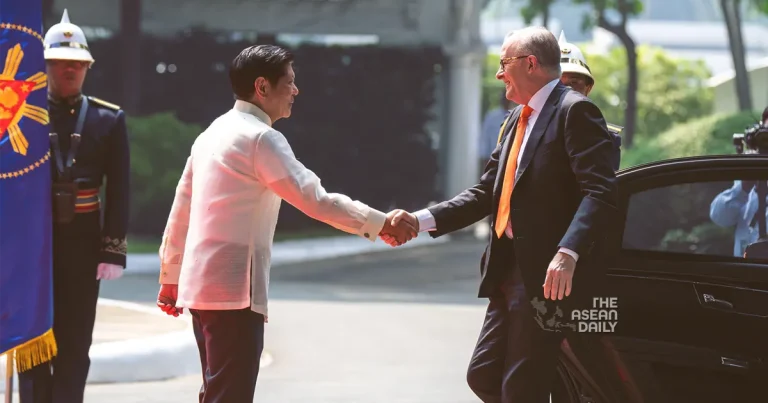8-9-2023 (MANILA) The Philippines and Australia are set to solidify their security and economic partnership on Friday through the signing of a strategic agreement. The move comes as both countries aim to counter China’s growing regional influence.
The agreement is expected to be finalized following a meeting between Philippine President, Ferdinand Marcos Jr., and Australian Prime Minister, Anthony Albanese, in Manila. The visit by Albanese marks the first bilateral talks by an Australian Prime Minister in Manila in two decades, following a series of visits by senior government officials to the archipelago nation since Marcos took office in 2022.
China’s increasing assertiveness on Taiwan and militarisation of artificial islands in the disputed South China Sea have prompted Canberra, as well as Washington, to deepen defence cooperation with the Philippines, a longstanding ally.
Marcos thanked Albanese for his “strong support” for the Philippines as it seeks to fend off “not valid” maritime claims, without directly mentioning China. “To have friends like you and partners like you especially on that subject is very gratifying and encourages us to continue down that path,” Marcos said.
Albanese described the two countries as “great friends” and expressed hope that his visit would help take the relationship “to an even higher level”.
Beijing claims almost the entire sea, ignoring an international ruling that its stance has no legal basis. The Philippines, Vietnam, Malaysia, and Brunei have overlapping claims to parts of it.
Former Philippine President, Rodrigo Duterte, pivoted away from the country’s traditional security partners towards China, but the Marcos administration has sought to reverse that stance.
Last month, Australian and Filipino troops held a significant joint exercise near the contested waters, an event that was watched by Marcos, his defence minister, Gilberto Teodoro, and Australian Defence Minister, Richard Marles. The two ministers issued a joint statement indicating their commitment to plan “bilateral joint patrols in the South China Sea”.
Under the strategic partnership, the countries will seek to expand cooperation in various areas, including defence and security, climate change, and education. Rights Watch called on Albanese to “seriously” discuss human rights during his talks with Marcos, including pushing for an end to the deadly drug war started by Duterte. Thousands of people were killed in the anti-narcotics campaign, which sparked an international investigation into alleged human rights abuses. The crackdown has continued under Marcos, with nearly 400 deaths recorded by a Philippine monitoring group.
“A security partner that routinely violates basic human rights will ultimately provide little safety and security for anyone,” said Australia director for Human Rights Watch, Daniela Gavshon, in a statement issued ahead of the talks.




